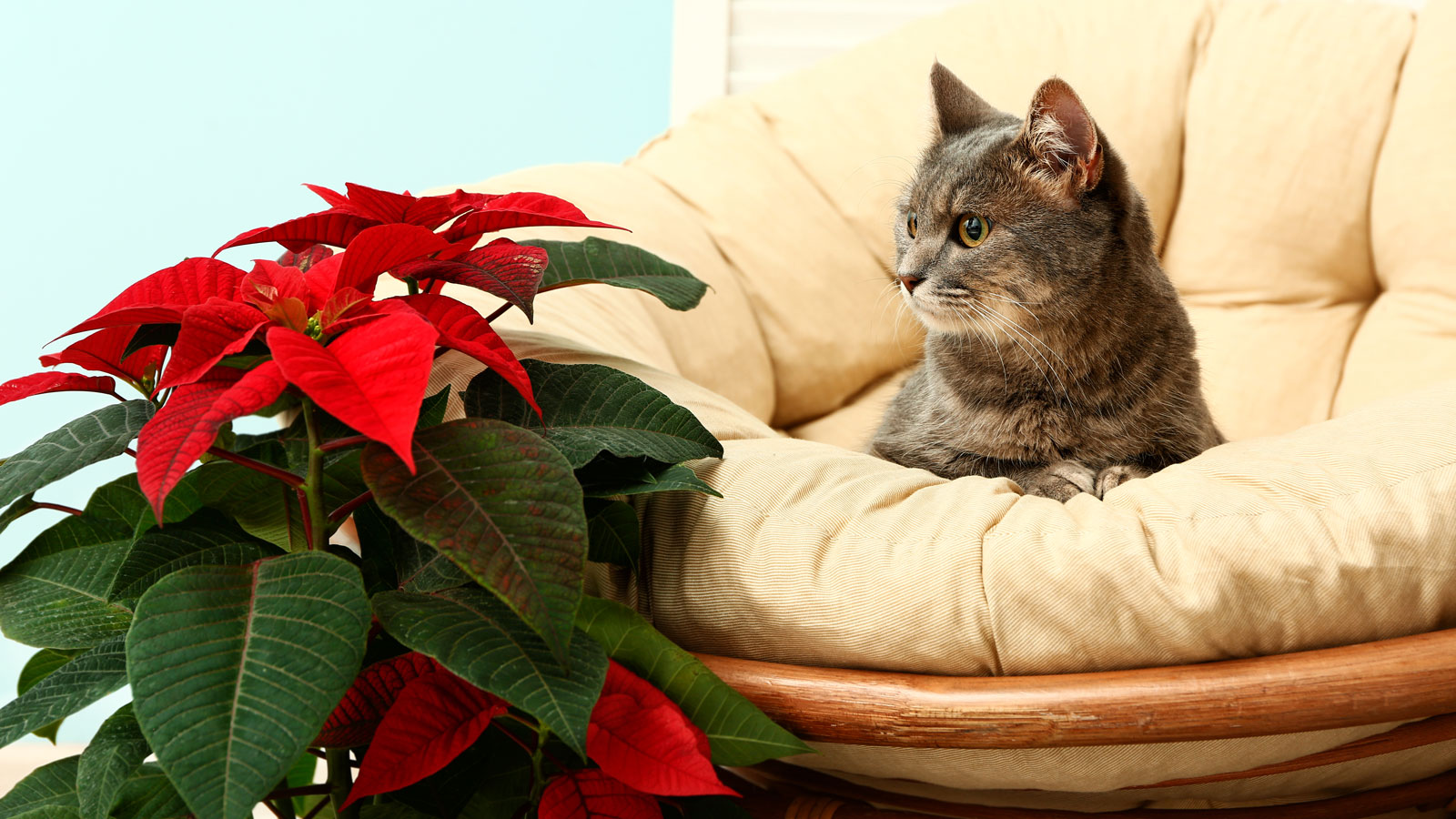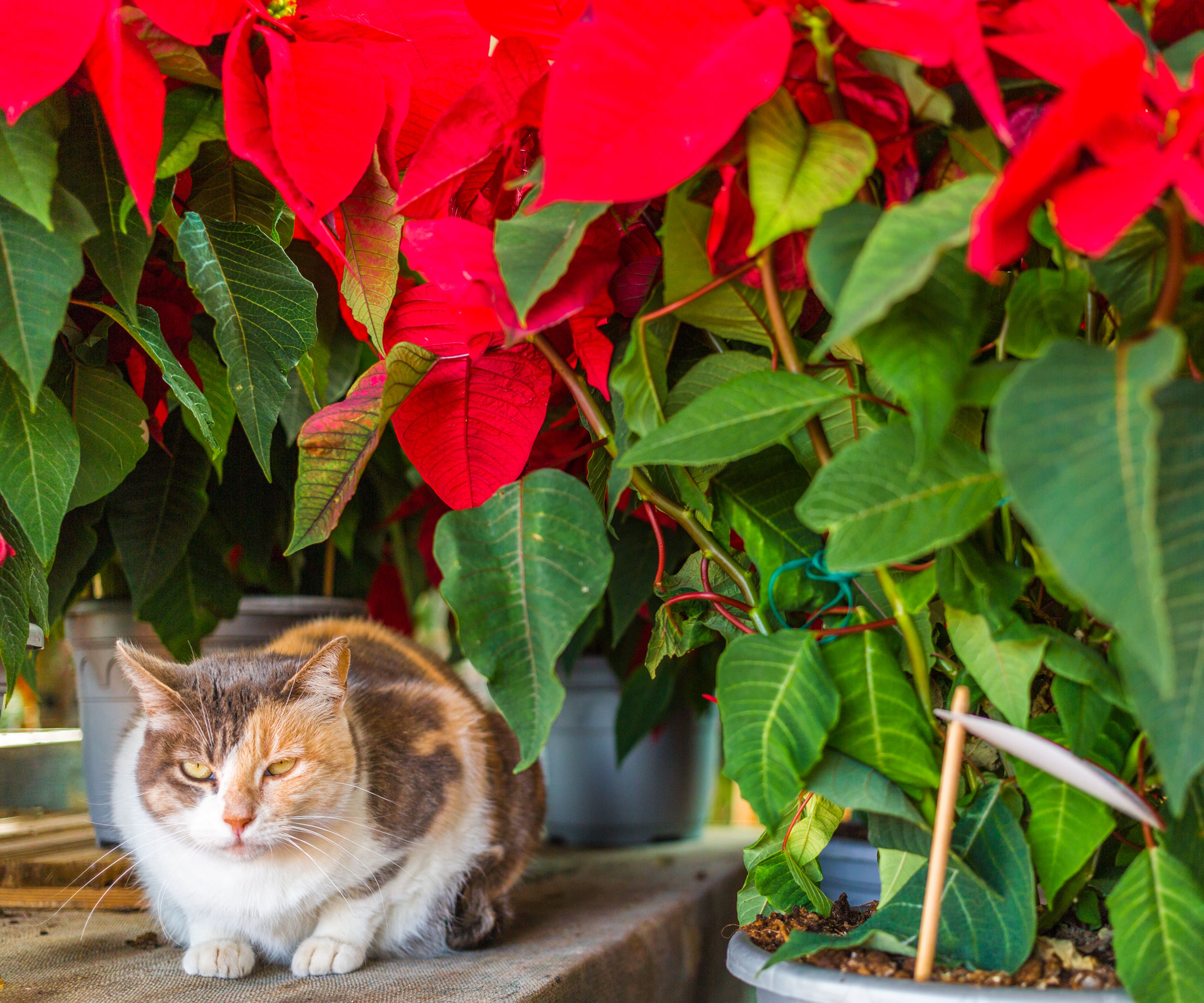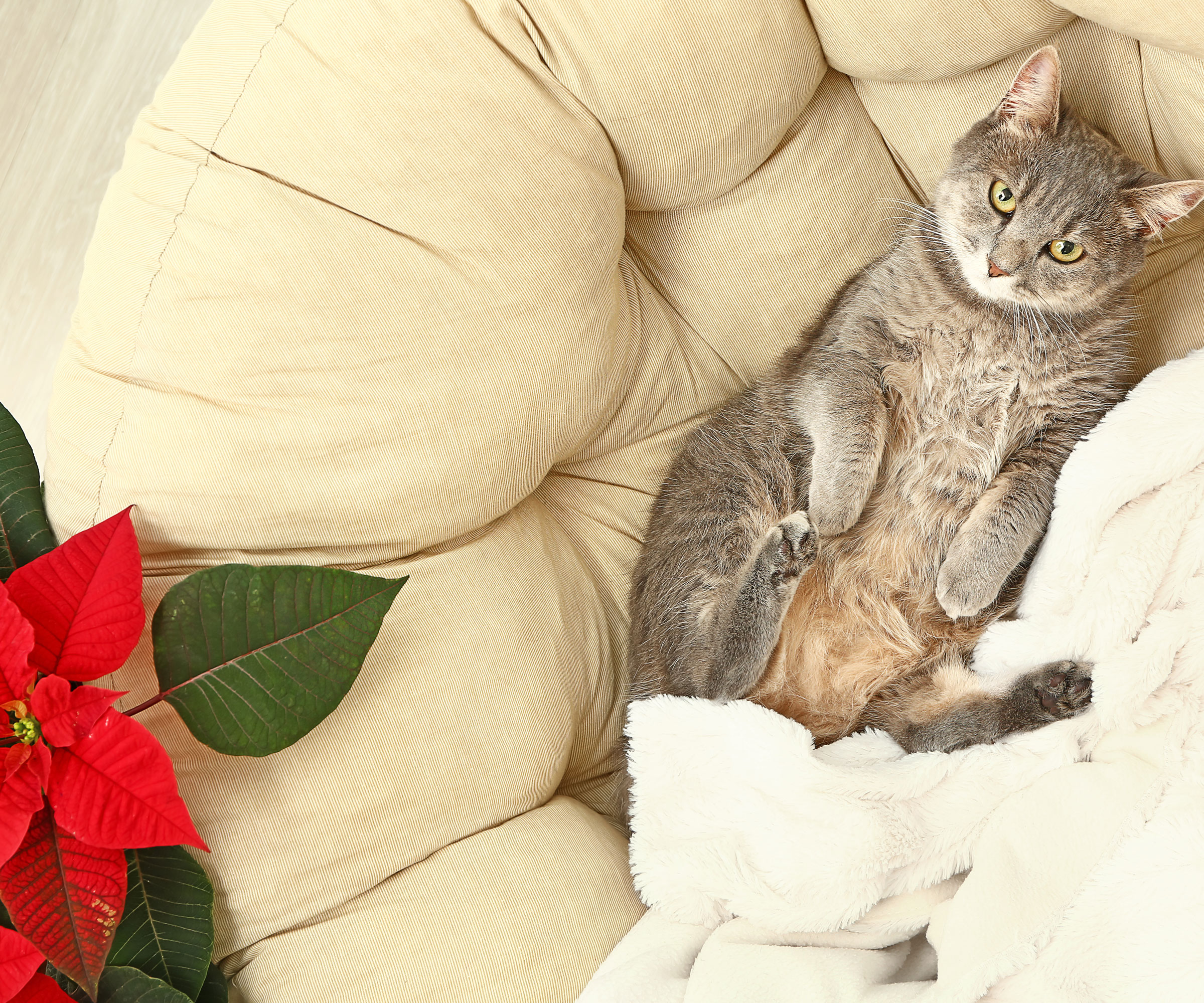Are Poinsettias Poisonous To Cats? What You Need To Know For Happy, Healthy Felines
They have the potential to brighten up homes long after the holidays, but are poinsettias poisonous to cats? Make sure you read this before mixing the two!


Amy Draiss
They are one of the most popular and vivid holiday plants around and if you are lucky they can survive for a lot longer than just the holidays – but are poinsettias poisonous to cats? There are quite a lot of horror stories attached to this seasonal bloomer, and some cat-loving gardeners get understandably twitchy.
Festive poinsettia has a reputation for being toxic to cats, and some pet owners refuse to keep these plants anywhere near their homes. But how poisonous are poinsettia plants, really? Read on to dispel the myths about poinsettias and cats.
Are Poinsettia Plants Poisonous To Cats?
Poinsettia plants (Euphorbia pulcherrima) have an undeserved reputation for being poisonous to pets. Pitching festive poinsettia and pets in the same environment for long is meant to be a recipe for disaster. But is it really a big mistake to grow poinsettia with cats?
It’s an old myth that seems hard to refute. However, university research shows that, while the white sap inside the plant can be irritating, pets chewing on leaves or stems of poinsettias will not be poisoned. So are poinsettias toxic to cats? The simple answer is that a cat or other pet would have to consume a large quantity of the leaves to cause stomach distress.

Why the Confusion about Poinsettias and Cats?
The confusion about whether poinsettias are bad for cats or people may relate to the milky sap found in plants of the Euphorbia family. The milky sap can be irritating to the skin, eyes and mouth. In some plants, the sap toxicity is worse than in others. But in poinsettias, the irritant is mild.
So if you are intending to grow poinsettia as a houseplant, you can relax. In most cases, this sap would only bother someone with a latex allergy who is likely to get the sap on his skin. It is perhaps worth noting that the American Society for the Prevention of Cruelty to Cats (ASPCA) does rate poinsettias as mildly toxic, but agrees the toxicity is “generally overrated” on a general level.
What Happens if a Cat Eats Poinsettia?
Are poinsettias bad for cats? If a cat or other pet chews enough leaves of the poinsettia plant, there is a possibility of vomiting or drooling. But a cat will not die from ingesting poinsettia leaves. Even if you become aware of poinsettia leaf drop or broken poinsettia stems, there is no major cause for alarm or panic.
Of course, if a cat or other pet chews too much of any type of plant leaves, the pet may experience a stomach upset or vomiting. If your cat tends to nibble on plants, don’t worry. You can still grow a poinsettia – but in this case, your best option is to keep the poinsettia somewhere high up. Try a high shelf or the top of a mantelpiece or bookcase, somewhere in the room where the cat is unlikely to reach it. Alternatively, you can place it in a room the cat does not frequent.

Which Decorative Plants Do Cause Cats Distress?
For anyone who has hesitated over the possible pet toxicity of festive plants such as poinsettia or amaryllis, the fact is that there are other decorative holiday plants that might be a bigger cause for concern. Mistletoe, holly and lilies are far more problematic than poinsettias. Mistletoe leaves or berries, if ingested, can cause vomiting and dehydration that will likely require medical treatment.
Sign up for the Gardening Know How newsletter today and receive a free copy of our e-book "How to Grow Delicious Tomatoes".
Holly leaves also have sharp spines that can pierce the mouth or tongue of our feline friends. In addition, holly leaves and berries contain a toxic chemical that can cause severe vomiting and diarrhea if consumed, and may require veterinary treatment. Lily leaves or flowers, if eaten, can also cause severe kidney damage, which could be fatal. Always call a veterinarian immediately if a pet consumes any part of a lily.
It is always a good idea to read up on any houseplant before you introduce it into your home. Selecting plants that are safe for cats is definitely going to save you some sleepless nights. But while you may think that poinsettias and cats don’t mix, there isn’t enough of a threat to keep you from enjoying these beautiful plants both during the holiday season and beyond.

After graduating from Oklahoma State University with a degree in English, Susan pursued a career in communications. In addition, she wrote garden articles for magazines and authored a newspaper gardening column for many years. She contributed South-Central regional gardening columns for four years to Lowes.com. While living in Oklahoma, she served as a master gardener for 17 years.
- Amy DraissDigital Community Manager